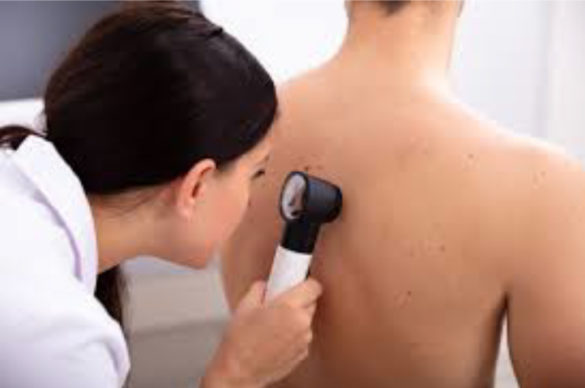 Spotting the signs of skin cancer early really is a life saver, but if caught late can be fatal.
Spotting the signs of skin cancer early really is a life saver, but if caught late can be fatal.
Early detection by checking any new moles or changes in the appearance of existing moles, put simply, saves lives. Malignant melanoma is responsible for approximately 75-80% of skin cancer deaths and is the second commonest cancer in young people. More than 1 in 4 skin cancer cases are diagnosed in people under 50, which when compared to other cancers is unusually early.
Skin cancer causes 2,500 deaths every year across the UK.
A skin specialist or dermatologists can diagnose skin cancer, and at Diamond Skin Care our expert dermatologists use the best early detection technology of dermoscopy. This allows for a magnified, polarised light examination beneath the skin’s surface and can detect the earliest changes or abnormalities beneath the skin’s surface which the eye misses over time.
Skin cancer is the 5th most common cancer in the UK with around 16,000 new cases of melanoma are diagnosed each year.
What is skin cancer screening?
Advanced skin cancer is easily identified but diagnosing the earliest changes in moles is a highly specialist area. Whole body skin cancer screening is not available in the NHS. It is not carried out by GPs or by dermatologists in the NHS, and this is one of the main reasons why Diamond Skin Care designed the full body mole check service in which a new screening system was founded. This system is now taught to internal staff and nationally as well. Diamond Skin Care is the first company to create a mentorship course for healthcare practitioners for the early detection of skin cancer using a dermatoscope.
Diamond Mole Checks is an advanced skin cancer service offering skin cancer screening designed to provide immediate peace of mind about your skin cancer concerns.
Our full body mole check is performed by dermatology nurses and doctors specifically highly trained in dermoscopy (specialised early detection). This check offers instant peace of mind, with an appointment available within 5 days and results given immediately.
What happens after skin cancer diagnosis?
If skin cancer is suspected, you’ll need a skin procedure under a local anaesthetic, with surgery most often done by dermatologists. The skin sample is sent for testing. A wider area of skin is sometimes taken in a second procedure depending on the findings from the first biopsy.
The type of treatment you receive will depend on the type of skin cancer and for melanoma, what stage the melanoma has reached.
Although there are 10 defined stages of melanoma progression, regular screening generally catches melanoma within the first 2 stages. At these stages, melanoma is largely considered curable with surgery alone
The latter stages of melanoma require more in-depth treatment, which is why catching skin cancer as early as possible is so important.
Call 01603 298396 or email [email protected] today for Expert Skin Cancer Screening and monitoring appointments. You can also book online and read our definitive Skin Cancer Guide for further information.


